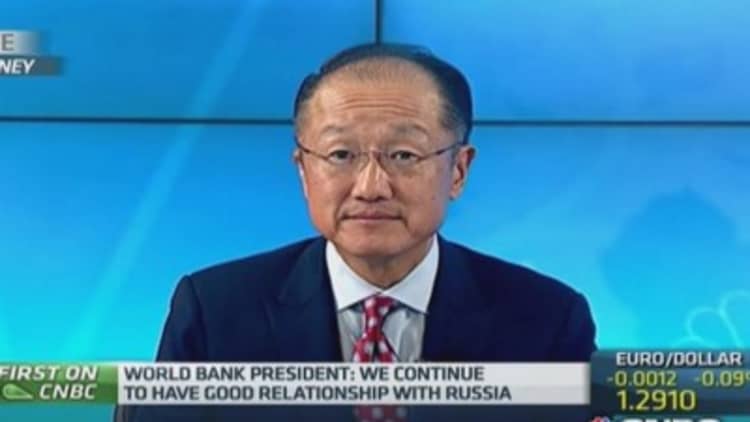Former Secretary of State Madeleine Albright recently told CNBC that she believes Vladimir Putin is living in a "parallel universe."
"He has made up his own facts," Albright said.
Perhaps that explains why Russia watchers aren't surprised by the latest reported information-control experiment from the Russian president, who is said to want to control Russia's access to the Internet itself.
Media reports from within Russia and elsewhere in Europe indicate that the Kremlin wants the ability to temporarily "unplug" the Internet in case of an emergency such as a cyberattack or other unrest, including protests in the country.
That would include the ability to disconnect Russia from the global network, which would include preventing IP addresses from accessing Russian networks from abroad.
Read MoreWorld Bank warns on Russia as sanctions bite
Russian newspaper Vedomosti reported last week that officials within the Ministry of Communications have conducted experiments since July to test the "stability of the Internet in Russia and prevent outside violations.'"
The Kremlin denies the allegations. Talks about whether the government could implement such a strategy were set to take place during Putin's Security Council meeting on Monday of this week, but Russian officials afterward denied that such conversations took place.
"Discussions on cutting off [the Russian Internet] from the global Internet were not on the agenda of today's meeting of the Security Council," Dmitry Peskov, Putin's press secretary, told reporters.
Read More Russia and China forming closer ties: Total CFO
Johns Hopkins University fellow Donald Jensen, though, doesn't buy it.
"I think they have the capability to do it, probably discussed it, but have not yet decided to pull the trigger," Jensen told CNBC.
Still, former U.S. federal computer crime prosecutor Mark Rasch, an expert in technology and cyber law, said that the kill switch option is not as easy for governments to implement as we may think.
"There are no gates, and there is no moat on the Internet," Rasch said.

Rasch said that many countries maintain some level of control over users' access to the Internet. The question with regard to Russia, he said, is to what extent Putin is willing to go to gain more control.
"Countries use it by providing state-sponsored Internet access or by mandating certain blocking or filtering," Rasch said. "China controls a certain amount, Iran has a state-controlled (Internet service provider), and North Korea has absolute control over the Internet. The goal is to control what people in their country can see and say."
Putin's Russia has tried to control what Russians can see when it comes to television, newspapers and other traditional media. Putin himself was chief of the KGB during the Soviet era, when information access in Russia and much of eastern Europe was strictly controlled by autocratic regimes.
Read More Russia Deputy PM: 'Sanctions not good from any side'
Recently, popular alternative Russian news site grani.ru, which often publishes unflattering and satirical stories about Russia's laws and politicians, has become difficult for Russians to access without going through a third-party browser. The site currently can be accessed only through the Opera browser.
Matthew Rojansky, director of the Kennan Institute at the Wilson Center, said that plans to further isolate Russia from much of the rest of the world could have a boomerang effect.
"Russia has been cut off from the West before," he said, "usually hurting both sides in the end, but Russia most of all."



